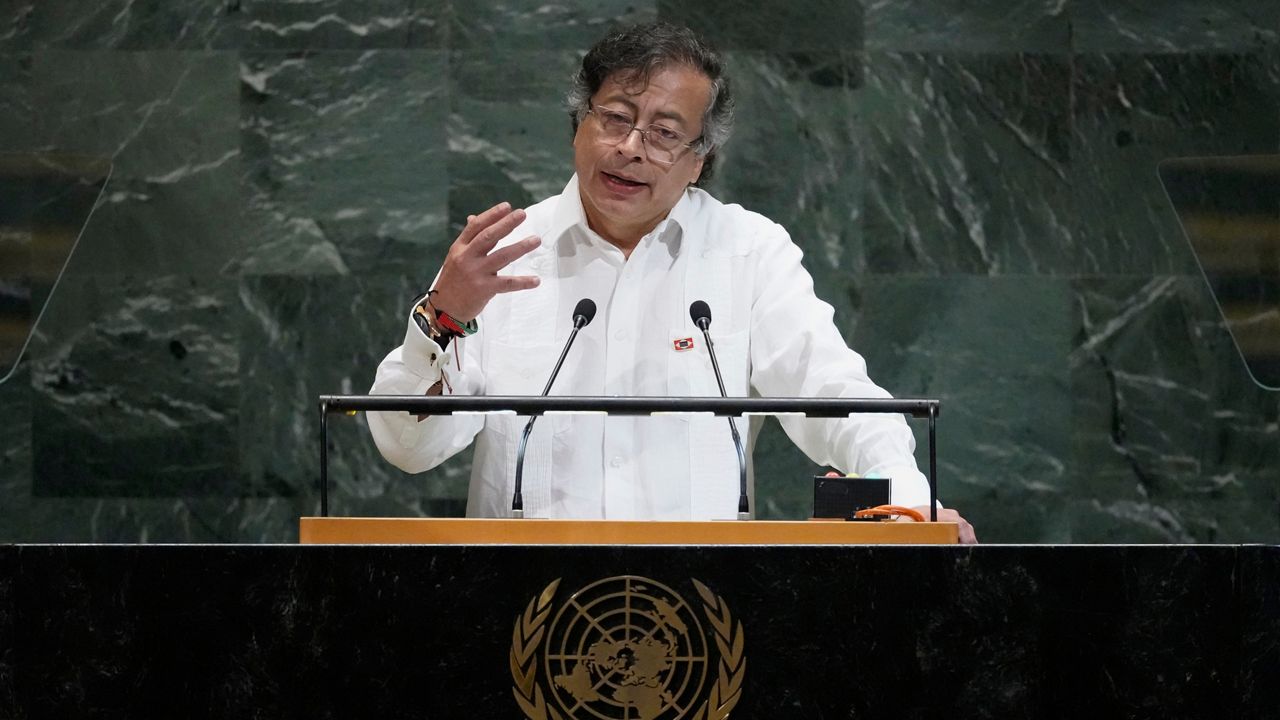Florida lawmakers consider ways to handle rising health care premiums, and Columbia reacts after President Donald Trump ends aid to the country.

Florida lawmakers differ on how to handle potentially higher health care premiums
Millions of Floridians could face higher health insurance premiums in 2026.
The looming spike comes as lawmakers in Washington face off over enhanced tax credits applied in 2021 to the Affordable Care Act.
Republicans want to cut the enhanced credits. While Democrats are fighting for the tax credit to stay.
With 4.7 million enrolled in the public marketplace, Florida could be impacted if subsidies are allowed to expire.
Florida Rep. Darren Soto argued on X that Florida will be the hardest hit state if health care premium subsidies enabled by the Affordable Care Act are allowed to expire at the end of the year.
“4.6 Million Floridians will see HUGE healthcare hikes of 75% or more unless Congress fixes it. The clock is ticking!” he wrote on X.
Floridians impacted by those subsidy cuts could either pay higher premiums or otherwise drop coverage altogether.
“I think what’s so frustrating is that we see the majority party cut off their nose to spite their face. They just want to keep those headlines. They just want to give meat to their base. But they’re not focused on how people are actually living,” Florida House Minority Leader Fentrice Driskell said.
Meanwhile, Florida Republicans are brainstorming aid. Although it seems Medicaid expansion is off the table.
“We’ll we’ll see as a state what we need to do. So I’ll be open-minded to it, not expansion, but to certainly figure out how we can best help those who need the help the most,” State Sen. Jim Boyd said.
Any solution from lawmakers will require the approval of Gov. Ron DeSantis.
Over the weekend, he suggested that younger Floridians could be best served with a health care more focused on paying for “catastrophic” health coverage.
“Most people, particularly under 50, what they really need is a catastrophic that’s affordable. Where then they can pay whatever they’re doing out of a health savings account. You know, most people outside of paying insurance premiums are not paying a lot,” DeSantis said.
Colombia has recalled its ambassador to the United States amid an increasingly angry back-and-forth between U.S. President Donald Trump and Colombian President Gustavo Petro.
Tensions increased Sunday when Trump called Petro “an illegal drug leader” and “a lunatic” after Petro had accused the U.S. government of killing a Colombian citizen in a Sept. 16 strike on a boat the U.S. said was allegedly carrying drugs. Petro said one of those aboard was a fisherman named Alejandro Carranza and that his boat was malfunctioning when hit.
American naval ships, fighter jets and drones are deployed in the region for what the administration has described as an “armed conflict” with drug cartels.
“The United States has invaded our national territory, fired a missile to kill a humble fisherman, and destroyed his family, his children,” Petro wrote on his social media.
Colombia’s Foreign Affairs Ministry said Monday that Ambassador Daniel García-Peña Jaramillo was already in Bogota.
On Sunday, U.S. Defense Secretary Pete Hegseth announced the latest U.S. strike on a vessel that was allegedly carrying “substantial amounts of narcotics.”
He said the vessel was associated with a Colombian rebel group — the National Liberation Army, or ELN — that has been in conflict with Petro’s government. He did not provide any evidence for his assertions, but he shared a brief video clip of a boat engulfed in flames after an explosion on Friday.
Petro, who can be as vocal on social media as his American counterpart, rejected Trump’s accusations and defended his work to fight narcotics in Colombia, the world’s largest exporter of cocaine.
“Trying to promote peace in Colombia is not being a drug trafficker,” Petro wrote on Sunday. He suggested that Trump was being deceived by his advisers, described himself as “the main enemy” of drugs in his country and said Trump was being “rude and ignorant toward Colombia.”
The Colombian Foreign Ministry described Trump’s statement as a “direct threat to national sovereignty by proposing an illegal intervention in Colombian territory.” Defense Minister Pedro Sánchez told reporters that the country “has used all its capability and also lost men and women fighting drug trafficking.”
Trump’s latest broadside against Petro raises the possibility of an expanding clash in Latin America, where the U.S. has already increased pressure on neighboring Venezuela and its leader, Nicolás Maduro.
American naval ships, fighter jets and drones are deployed in the region for what the administration has described as an “armed conflict” with drug cartels. Trump also authorized covert operations inside Venezuela.
Unlike Venezuela, Colombia is a longtime U.S. ally and the top recipient of American assistance in the region. But coca cultivation reached an all-time high last year, according to the United Nations, and there has been fresh violence in rural areas where the government spent years battling insurgents before reaching a peace deal a decade ago.

